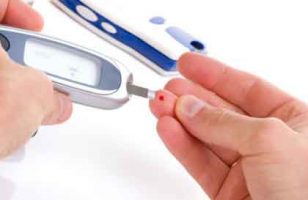- Home
- Editorial
- News
- Practice Guidelines
- Anesthesiology Guidelines
- Cancer Guidelines
- Cardiac Sciences Guidelines
- Critical Care Guidelines
- Dentistry Guidelines
- Dermatology Guidelines
- Diabetes and Endo Guidelines
- Diagnostics Guidelines
- ENT Guidelines
- Featured Practice Guidelines
- Gastroenterology Guidelines
- Geriatrics Guidelines
- Medicine Guidelines
- Nephrology Guidelines
- Neurosciences Guidelines
- Obs and Gynae Guidelines
- Ophthalmology Guidelines
- Orthopaedics Guidelines
- Paediatrics Guidelines
- Psychiatry Guidelines
- Pulmonology Guidelines
- Radiology Guidelines
- Surgery Guidelines
- Urology Guidelines
Type 1 diabetes cure comes closer to reality

Washington: A team of scientists has been able to halt diabetic condition for six months with the help of insulin-producing cells, bringing the cure for Type 1 diabetes closer to reality.
Experts from US hospitals and institutions including Harvard University managed to transplant cells into mice, which immediately began producing insulin.
The team was also able to show they could prevent the cells being rendered useless by the body's own immune system, which was effectively switched off.
Scientists are now working to replicate the results in people with the condition.
Doug Melton, who led that breakthrough, generated the human islet cells used for the new research from human stem cells developed by him.
Senior author Daniel Anderson said that they are excited by these results and are working hard to advance this technology to the clinic.
Sarah Johnson, UK director of policy and communication at JDRF, said if this study can be replicated in humans then one day we could potentially free people with Type 1 diabetes from a life of insulin injections.
Experts from US hospitals and institutions including Harvard University managed to transplant cells into mice, which immediately began producing insulin.
The team was also able to show they could prevent the cells being rendered useless by the body's own immune system, which was effectively switched off.
Scientists are now working to replicate the results in people with the condition.
Doug Melton, who led that breakthrough, generated the human islet cells used for the new research from human stem cells developed by him.
Senior author Daniel Anderson said that they are excited by these results and are working hard to advance this technology to the clinic.
Sarah Johnson, UK director of policy and communication at JDRF, said if this study can be replicated in humans then one day we could potentially free people with Type 1 diabetes from a life of insulin injections.
Next Story
NO DATA FOUND

Disclaimer: This site is primarily intended for healthcare professionals. Any content/information on this website does not replace the advice of medical and/or health professionals and should not be construed as medical/diagnostic advice/endorsement or prescription. Use of this site is subject to our terms of use, privacy policy, advertisement policy. © 2020 Minerva Medical Treatment Pvt Ltd